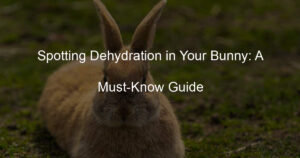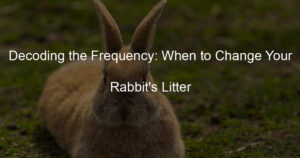Welcome to the world of Netherland Dwarf rabbit food! Feeding these delightful and petite rabbits requires careful attention to their specific dietary needs. In this comprehensive guide, we will explore the essentials of providing a well-balanced and nutritious diet for your Netherland Dwarf companion.
From understanding their digestive system and nutritional requirements to selecting the right types of hay, pellets, fresh vegetables, and treats, we will cover all aspects of feeding these adorable bunnies. We will also delve into portion sizes, feeding schedules, and the importance of maintaining a healthy weight for your Netherland Dwarf.
So, join us as we embark on a journey through the world of Netherland Dwarf rabbit food, ensuring that your furry friend receives the nourishment they need to thrive and lead a vibrant, healthy life.
What are the dietary requirements of Netherland Dwarf rabbits?
Netherland Dwarf rabbits have specific dietary requirements that are essential for their overall health and well-being. Their diet should primarily consist of high-quality hay, which is an important source of fiber for their digestive system. The roughage provided by hay helps maintain proper dental health and prevents gastrointestinal issues.
In addition to hay, Netherland Dwarf rabbits should also be given a variety of fresh vegetables and herbs to ensure they receive a balanced diet. These vegetables and herbs provide essential vitamins, minerals, and nutrients necessary for their optimal growth and health. It is important to introduce new foods gradually and monitor the rabbit’s response to avoid any digestive upsets.
How does a balanced diet contribute to the overall health of Netherland Dwarf rabbits?
A balanced diet plays a crucial role in promoting the overall health of Netherland Dwarf rabbits. A diet that includes a variety of foods ensures they receive all the necessary nutrients to support their growth, vitality, and immune system. A balanced diet helps prevent nutritional deficiencies or excesses that can lead to various health problems.
Adequate fiber from hay and fresh vegetables supports proper digestion and prevents gastrointestinal issues like bloating and stasis. Essential vitamins and minerals obtained from a diverse range of foods contribute to healthy bones, teeth, and organ function.
A balanced diet also helps maintain a healthy weight and prevents obesity, which can lead to a range of health complications. Providing a well-rounded and appropriate diet is essential for the long-term health and well-being of Netherland Dwarf rabbits.
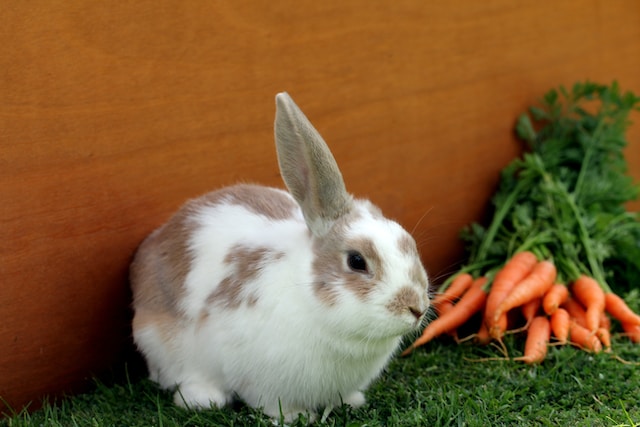
Are pellets the primary food source for Netherland Dwarf rabbits?
Pellets are commonly included in the diet of Netherland Dwarf rabbits, but they should not be the sole or primary food source. While pellets can provide some essential nutrients, they should be considered as a supplement rather than a main component of their diet. Hay should make up the majority of their food intake.
High-quality Timothy hay or other grass hays should be available at all times to ensure a steady supply of fiber. Fresh vegetables, herbs, and a limited amount of pellets can be added to provide additional nutrients and variety. It is important to choose pellets specifically formulated for rabbits, avoiding those with excessive carbohydrate content or high sugar levels. Moderation and a varied diet are key to meeting the nutritional needs of Netherland Dwarf rabbits.
What fresh vegetables and herbs are suitable for Netherland Dwarf rabbits?
Netherland Dwarf rabbits can enjoy a range of fresh vegetables and herbs as part of their diet. Some suitable options include leafy greens like romaine lettuce, spinach, kale, and cilantro. Other vegetables such as carrots, bell peppers, broccoli, and zucchini can also be offered in small quantities.
It is important to introduce new vegetables gradually and observe the rabbit’s response to ensure they tolerate them well. Avoid feeding vegetables that are high in starch or sugar, such as potatoes or corn. Fresh herbs like parsley, basil, dill, and mint can be provided as occasional treats, adding variety and additional nutrients to their diet. Always wash vegetables and herbs thoroughly and remove any pesticides or potential contaminants before offering them to the rabbits.
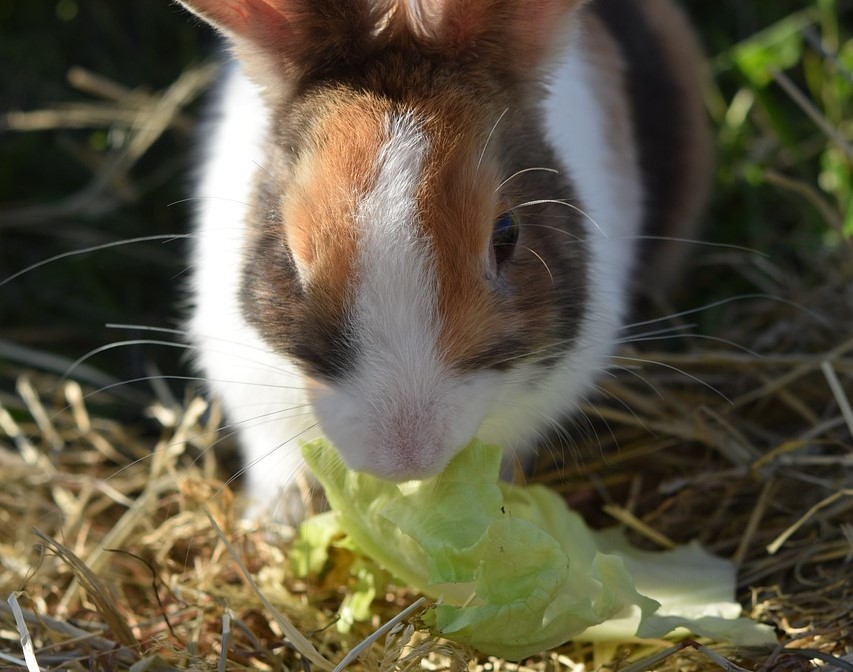
Can Netherland Dwarf rabbits consume fruits, and if so, which ones are safe?
Netherland Dwarf rabbits can enjoy certain fruits as occasional treats, but they should be given in moderation due to their sugar content. Fruits should never be the main component of their diet. Safe fruits for Netherland Dwarf rabbits include small portions of apples, pears, strawberries, blueberries, and raspberries.
These fruits can provide some natural sweetness and additional nutrients. However, it is important to remove any seeds, pits or stems that can be harmful to rabbits. Always introduce fruits slowly and monitor the rabbit’s response to ensure they tolerate them well and do not experience any digestive issues. It is best to offer a variety of fruits in small amounts and only as occasional treats to maintain a balanced and healthy diet for Netherland Dwarf rabbits.
Are there specific hay varieties that are beneficial for Netherland Dwarf rabbits?
When it comes to choosing hay for Netherland Dwarf rabbits, high-quality grass hay varieties are the most beneficial. Timothy hay is often recommended as it provides a good balance of fiber and nutrients. Other grass hays like orchard grass, meadow grass, or brome grass can also be suitable options.
These hay varieties offer the necessary roughage to support the digestive health of Netherland Dwarf rabbits. The long strands of hay help wear down their teeth and maintain proper dental function. It is important to select fresh and fragrant hay that is free from mold, dust, or other contaminants. Offering a variety of grass hays can provide additional flavors and textures to keep the rabbits interested in their diet and promote optimal digestion.
| Dietary Component | Description | Importance |
|---|---|---|
| High-Quality Pellets | Fortified with essential nutrients | Provides necessary vitamins and minerals |
| Fresh Vegetables and Herbs | Nutrient-rich, non-toxic options | Offers variety and additional vitamins |
| Hay | Grass or Timothy hay | Aids in digestion and maintains dental health |
| Safe Fruits | Limited quantities of safe fruits | Provides natural sugars and occasional treats |
| Fresh Water | Clean and accessible water | Prevents dehydration and aids in digestion |
How can the feeding schedule be established for Netherland Dwarf rabbits?
Establishing a feeding schedule is important for Netherland Dwarf rabbits to maintain a healthy routine and prevent overfeeding. These rabbits thrive on consistency, so it is best to establish a fixed schedule for feeding. The ideal feeding schedule for Netherland Dwarf rabbits typically includes providing a constant supply of fresh hay, as they should have access to it at all times.
Additionally, fresh vegetables and herbs can be offered once or twice a day in small portions. Pellets, if included in the diet, should be given in measured amounts according to the specific recommendations of a veterinarian or a rabbit nutritionist. It is important to monitor the rabbit’s eating habits and adjust the feeding schedule as needed, ensuring they have a balanced diet and maintain a healthy weight.
What are the considerations for feeding treats to Netherland Dwarf rabbits?
Feeding treats to Netherland Dwarf rabbits can be a way to provide them with additional enrichment and rewards. However, there are considerations to keep in mind. Treats should be given in moderation and should not exceed 10% of the rabbit’s overall diet. It is important to choose healthy treats that are safe for rabbits and avoid those high in sugar, fat, or artificial additives.
Fresh vegetables and herbs can be excellent treatment options as they provide both nutrition and enjoyment. Always introduce new treats gradually and monitor the rabbit’s response to ensure they tolerate them well. Variety in treats can keep the rabbits engaged, but it is important to maintain a balanced diet and avoid excessive treat consumption that can lead to weight gain or digestive issues.
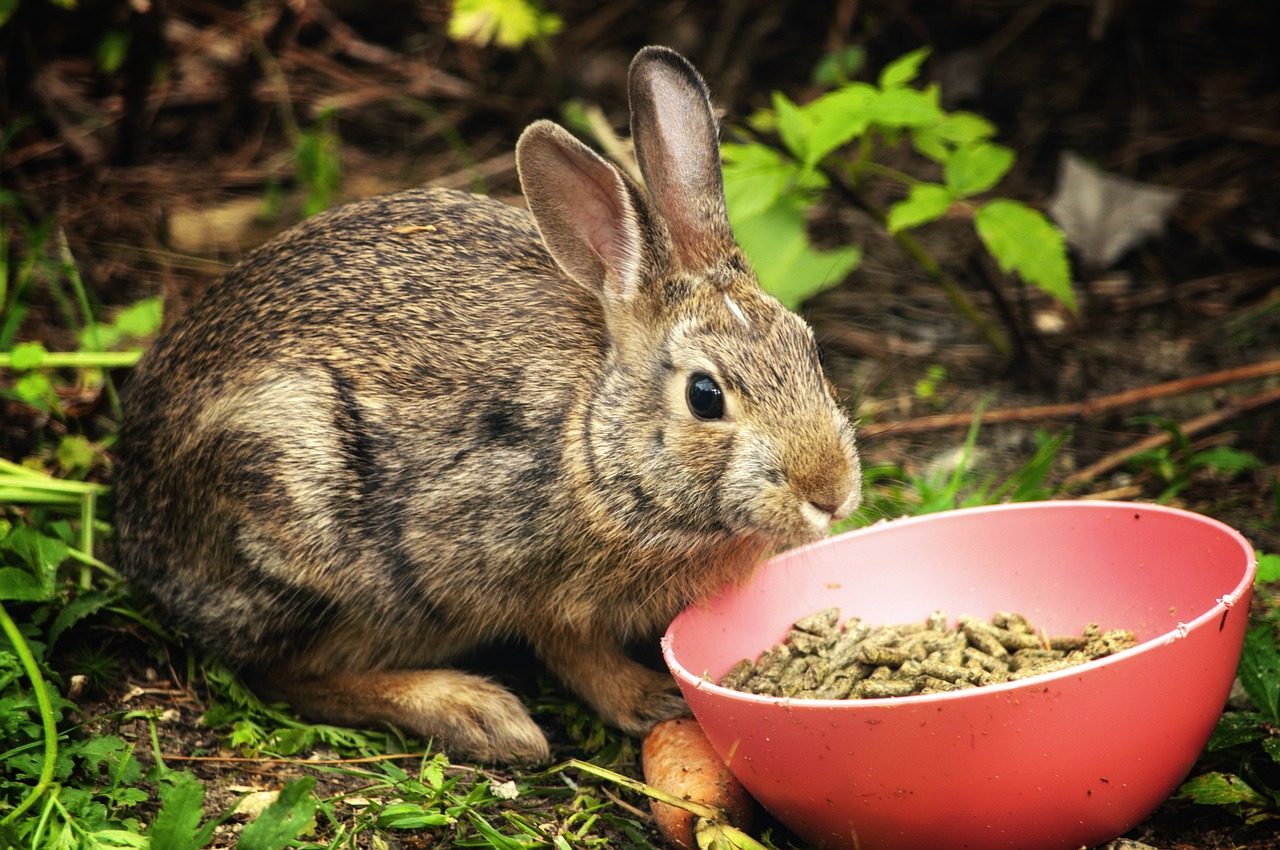
Can Netherland Dwarf rabbits consume commercial rabbit treats available in the market?
Commercial rabbit treats available in the market can be consumed by Netherland Dwarf rabbits, but careful selection is necessary. Not all commercial treats are created equal, and some may contain ingredients that are not suitable for rabbits. When choosing commercial treats, it is important to read the labels and avoid treats that are high in sugars, fats, or artificial additives.
Look for treats specifically formulated for rabbits and made from natural, rabbit-friendly ingredients. It is always a good idea to consult with a veterinarian or do thorough research to ensure the treats are safe and healthy for Netherland Dwarf rabbits. As with any treat, moderation is key to maintaining a balanced diet for the rabbits.
How does water intake play a crucial role in the diet of Netherland Dwarf rabbits?
Water intake is crucial for the diet of Netherland Dwarf rabbits and plays a vital role in their overall health. These rabbits should have access to clean and fresh water at all times. Water is essential for maintaining proper hydration, aiding digestion, and facilitating various bodily functions. It helps prevent dehydration, urinary tract problems and supports the overall well-being of the rabbits.
Netherland Dwarf rabbits have specific water intake needs depending on factors such as their size, activity level, and environmental conditions. It is important to regularly check the water supply, clean the water container or bottle, and refill it to ensure the rabbits have a constant supply of clean water. Monitoring their water intake and consulting with a veterinarian can help ensure they are adequately hydrated and receiving the necessary amount of water for their specific needs.
Final Thoughts
As we conclude our comprehensive guide to Netherland Dwarf rabbit food, we have gained valuable insights into the importance of providing a well-balanced and nutritious diet for these petite and energetic rabbits. By understanding their unique dietary requirements and digestive system, we can ensure that our Netherland Dwarf companions receive the optimal nutrition they need to thrive.
We have explored the essential components of their diet, including hay, pellets, fresh vegetables, and occasional treats, while also emphasizing portion control and maintaining a healthy weight. By offering a variety of high-quality food options, we can promote their overall well-being and prevent potential health issues.
Additionally, we have learned the significance of providing fresh water, ensuring a clean feeding area, and establishing a consistent feeding schedule. Feeding our Netherland Dwarf rabbits is not only an essential aspect of their care, but it also provides an opportunity for bonding and nurturing our relationship with these charming and affectionate creatures. So, let us continue to prioritize their nutrition, tailoring their diet to their specific needs, and providing them with the love and care they deserve.



